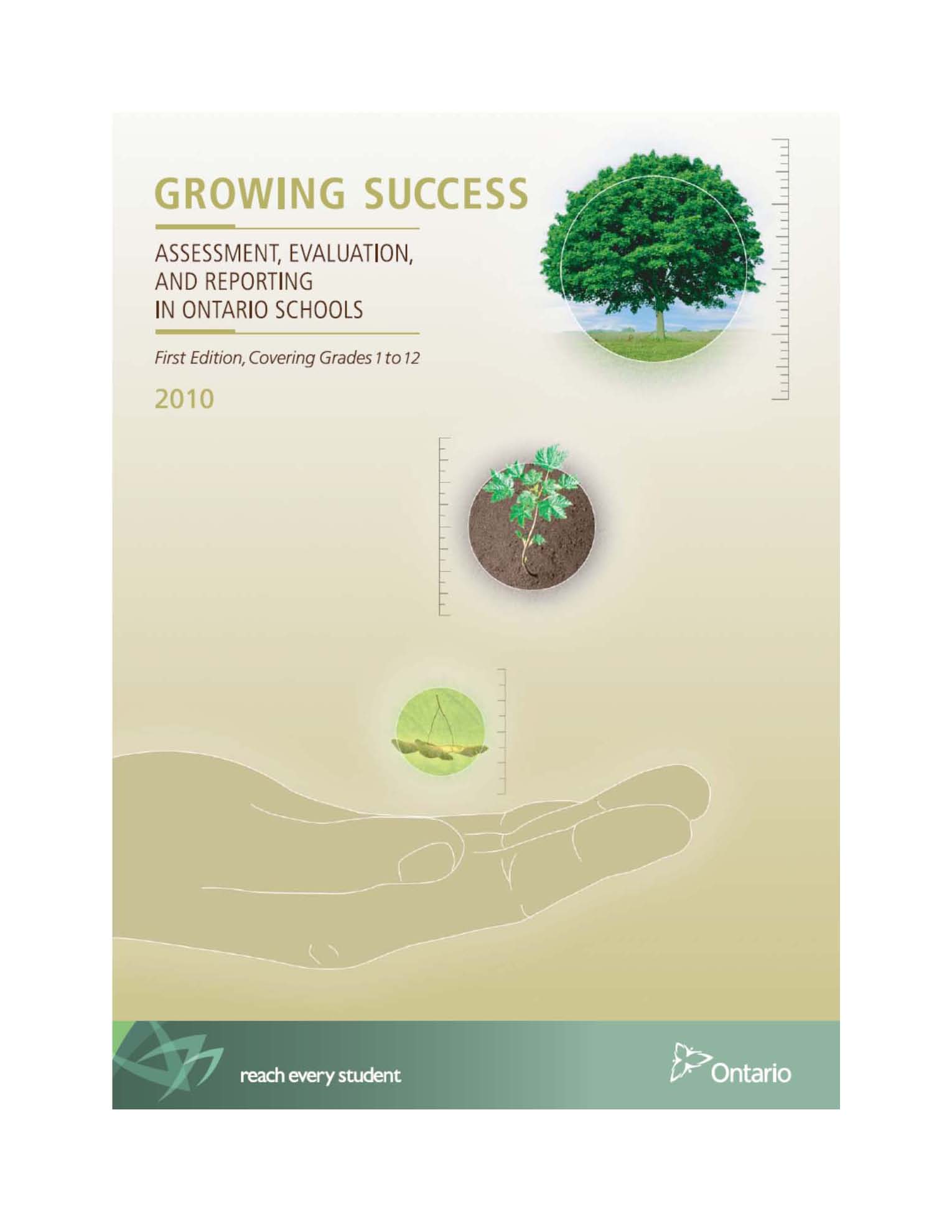The Growing Success document (2010) has radically changed how teachers in Ontario conduct and perform assessment in both the elementary and secondary classrooms. But what does it say about assessment and technology? You may be surprised to know that technology is actually mentioned twenty times in the document itself. Let's take a look at the following sections!
Learning Skills = Pages 9-14
The first thing that stood out to me is that technology is specifically mentioned in the Organisation section of the learning skills. It clearly states that the student is to, "identify, gather, evaluate, and use information, technology, and resources
to complete tasks." Consequently, incorporating and using technology is no longer a 'nice possibility', but mandatory. I wonder how many teachers know this?
Further along, the The Definition
and Selection of Competencies (DeSeCo) Project speaks to key competencies that students need to be working to develop. Globalisation and modernisation are creating an increasingly diverse and interconnected
world. I appreciate the quote indicating that in order to "make sense of and function well in this world, individuals need, for example,
to master changing technologies and to make sense of large amounts of available." This is coupled by the importance of showing students how to use technology interactively in order to be 21st century-savvy.
The Achievement Charts = Pages 20-25
In the primary (grades 1-8) Achievement Chart, technology is mentioned in the Application section of the rubric. Specifically, students need to be able to apply their knowledge and skills in familiar contexts including the use of technology. Again, this reiterates that technology is no longer optional in the Ontario classroom.
In the Science & Technology chart, technology is again mentioned in the Application section but students need to be able to make connections between science, technology, society, and the environment. They also need need to be able to propose courses of practical action to deal with problems relating to science, technology, society, and the environment.
Still wanting to hear more? Check out page 80 to learn more about E-Learning policy, or the English Language Learner section beginning on page 75. Happy exploring!

No comments:
Post a Comment